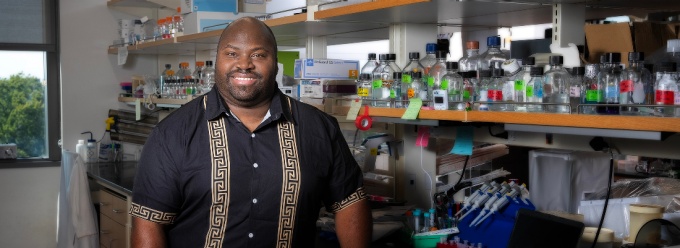Eukaryotic Pathogenesis

The laboratory of Joseph T. Smith, PhD, broadly focuses on uncovering the biomolecular mechanisms that regulate mitochondrial dynamics, metabolism, and cell differentiation in kinetoplastid parasites. The lab’s primary model organism is Trypanosoma brucei, the causative agent of African sleeping sickness in humans and nagana disease in domesticated livestock across sub-Saharan Africa.
Our research on pathogenic eukaryotes focuses on the basic biology of these complex pathogens, such as protozoan parasites and fungi, and host interactions in response to their infection.
Understanding Disease-Causing Organisms
We study Toxoplasma gondii, a parasite that causes serious disease in those with compromised immune systems, including AIDS patients. Considered an ideal model system, we also use this genome-sequenced organism to study how related pathogens, like malaria-inducing Plasmodium, cause disease.
We also study multiple aspects of the biochemistry and cell biology of Trypanosoma brucei, which causes African sleeping sickness. Our research is exploring, for example, RNA editing, RNA turnover, ribosomal biogenesis, protein arginine methylation and secretion and protein trafficking in this tse-tse fly-transmitted parasite.
All of this work is relevant to the related parasite T. cruzi — which causes South American Chagas disease. Our long-term goal is to discover potential drug targets.
We research the pathogenic fungus Cryptococcus neoformans, including how it adapts to its host environment through posttranscriptional gene regulation. This microbe causes one of the most common life-threatening fungal infections in AIDS patients.
We also are exploring co-infection of this fungus with HIV in human macrophages.
Research News
Learn More
Department Faculty

Gustavo Arrizabalaga, PhD
Senior Associate Dean for Faculty Affairs and Professor

James Bangs, PhD
Grant T. Fisher Professor and Chair of Microbiology & Immunology

John Panepinto, PhD
Professor, Senior Associate Dean for Biomedical Education

Joseph Smith, PhD
Assistant Professor




